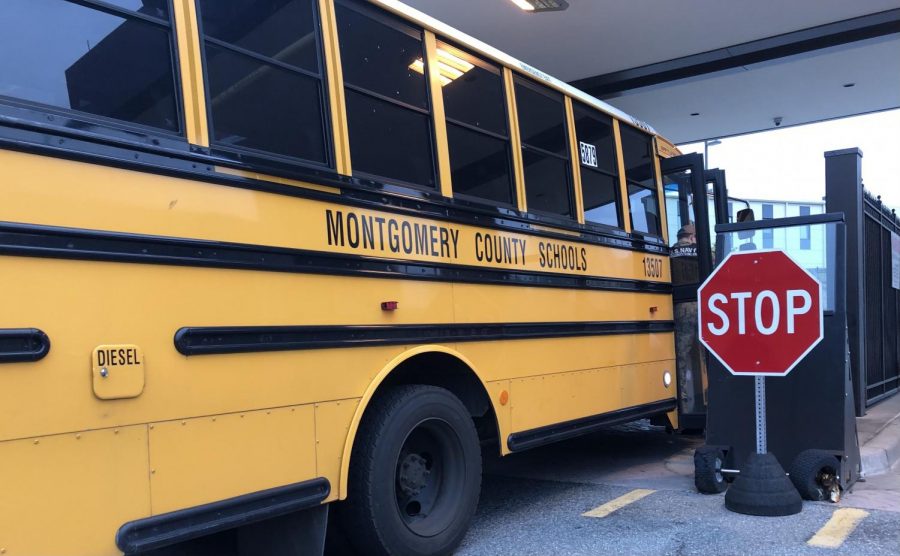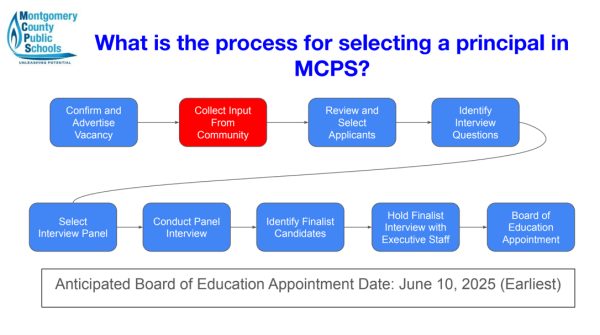MCPS to replace diesel bus fleet with electric
MCPS is aiming to have the entire bus fleet converted to electric by 2035.
On Feb. 23, MCPS announced that 326 diesel school buses would be replaced by electric buses over the next four years, to reduce pollution. Students, teachers and parents are excited about the decision.
MCPS signed an approximately $1.3 million four-year contract with Highland Electric Transportation LLC for the buses. However, the cost of the project won’t be completely paid for by MCPS. According to Smart Energy Decisions, MCPS was awarded an $817,000 grant from the Maryland Energy Association to aid the push for electric vehicles.
Electric buses aim to reduce air pollution and limit the impact on global climate change. On an average school day, the MCPS fleet of diesel buses uses roughly 17,000 gallons of diesel fuel. “We’ve been looking for a way to be better stewards of our environment with our bus fleet, and now we’ve found a way to do it,” MCPS Director of Transportation Todd Watkins said.
Highland Electric Transportation will be providing charging stations for the electric buses at each of the five MCPS bus depot locations. On a full charge, an electric bus is capable of driving 135 miles, which is about the distance from Washington to Philadelphia. According to ABC News, MCPS’s goal is to eventually be able to purchase 100% renewable energy from Highland to power the buses.
The four-year contract will only convert a fraction of MCPS’s 1,422 buses, but it is still the largest purchase of electric buses in North America. Over the next 14 years, the entire MCPS bus fleet will be converted to electric. “I find it exciting that the county is setting the example for the community,” science teacher Jennifer Mockensturm said.
The electric buses will be similar to diesel buses. The new buses will look and feel like the older diesel buses but will be significantly quieter. According to Watkins, when the buses are driving below 20 miles per hour, they produce an artificial sound. This sound is to help pedestrians know that the bus is coming and increase safety.
After 12 years of service, a bus will get replaced. MCPS will remove 12-year-old diesel buses from the cycle and replace them with electric buses starting next fall. According to Watkins, over the next two years, MCPS will continue to buy diesel buses, but three years from now, no more diesel buses will be purchased.
In total, converting the 1,422 diesel buses to electric will cost about $168 million. MCPS intends to pay the buses with money that otherwise would have been used to purchase and operate diesel vehicles. “Even though electric buses would take a bigger forefront investment, they can ultimately save money because of not having to pay for gas and having fewer necessary repairs,” freshman Malia Schmelzer said.
When Watkins first announced a small electric bus plan of one or two buses, he expected skepticism. But he got the opposite reaction instead. “When I announced the plan, many people were kind of upset that we were starting on such a small scale,” Watkins said.
Your donation will support the student journalists of Thomas S. Wootton High School. Your contribution will allow us to purchase equipment and cover our annual website hosting costs.
Kate is a 2024 graduate.







